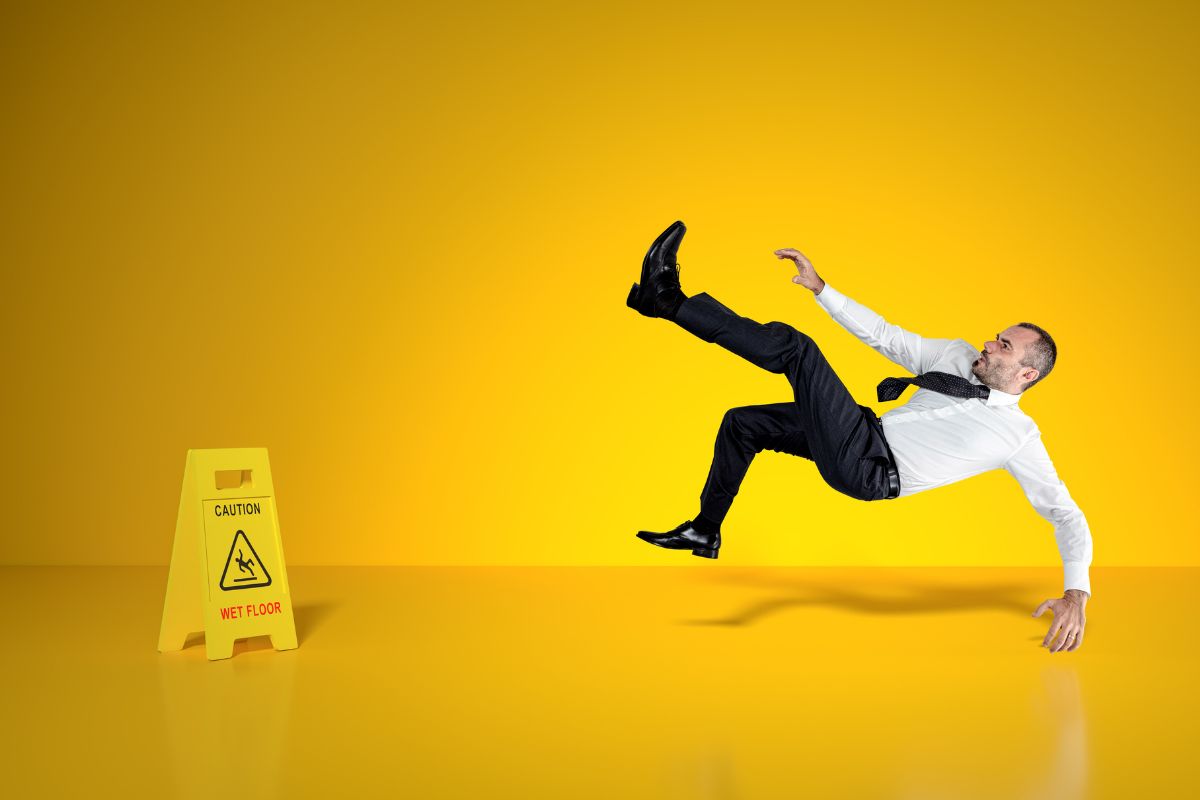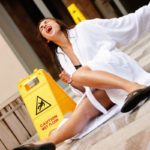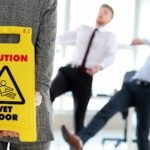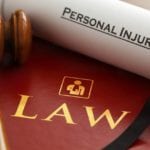Different Evidence Required For Different Kinds of Slip and Fall Victims
Falling in public can be embarrassing, but if you suffer injury because of that fall, you may wonder if you should file a lawsuit to help you pay for the injuries and what evidence you need to win a slip and fall case in Colorado Springs.
The truth is that you need several things to win a slip and fall lawsuit in Colorado, including a clear understanding of the complexities of the premises liability laws, sufficient evidence to satisfy the requirements for establishing liability outlined in those laws, and finally must file your slip and fall lawsuit within the strict time limits that apply to such cases.
Fortunately, all of these items can be accomplished by action – hiring an experienced slip and fall attorney who knows how to apply the facts and law in your case and has the advocacy skills to hold the responsible parties accountable for your injuries and losses.
As in all personal injury cases, a slip and fall plaintiff must prove that the defendant had an obligation, or duty, to the plaintiff, that the defendant breached that obligation, that the breach of responsibility caused the plaintiff’s injuries and losses, and the amount of the losses caused by the defendant’s breach.
But what makes slip and fall cases more complicated is that Colorado law imposes different levels of responsibility on landowners and property managers depending on how and why the injury victim was on their property. This determines the evidence required to prove a breach of that duty and win a slip and fall case.
Premises Liability Law In Colorado
Slip and fall injuries are the most common basis for “premises liability” lawsuits and the principle that property owners or others responsible for the maintenance and safety of a property have a duty or responsibility to keep that property in a reasonably safe condition. If they fail to do so and someone receives an injury due to that negligence, the injured individual may hold the property owner responsible by filing a premises liability claim.
The Colorado Premises Liability Act (the “Act”) is the law that governs claims for slips and falls on someone else’s property and sets time limits for bringing such claims against the property owner. The purpose of the statute is to establish a policy of responsibility by both a property owner and those on the property and to ensure that the level of recovery available to an injured party is equivalent to their status as a trespasser, licensee, or invitee.
The injured party’s status as one of those three types of visitors – trespasser, licensee, or invitee – will determine what evidence they must present to establish liability. Generally, as also outlined in the statute, a property owner’s duty to an invitee is greater than the duty they owe to a licensee. Likewise, they have more responsibility to a licensee than to a trespasser. How do these differ?
Related: What is the Statute of Limitations in Colorado for Personal Injury?
Evidence Trespassers Need To Win a Slip and Fall Case
The Act defines a trespasser as someone “who enters or remains on the land of another without the landowner’s consent.”
Since the property owner did not want, permit, or even know that a trespasser was on their property, the Act expects less of them in terms of maintaining their property and minimizing the risk of injury to such individuals.
Therefore, to win a slip and fall case, a trespasser must prove that their damages, injuries, and losses were “willfully or deliberately caused by the landowner.” They will need evidence that the property owner explicitly and intentionally created conditions or maintained their property in a way to cause them injuries. Such evidence is usually challenging to come by in most slip and fall cases.
Evidence Licensees Need To Win a Slip and Fall Case
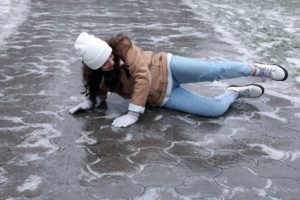 As defined in the Act, a licensee is someone invited onto the premises for a non-business or commercial purpose, such as a social guest. To receive compensation for your injuries from a slip and fall accident, a licensee must prove that their injuries and losses were caused by the property owner’s unreasonable failure to:
As defined in the Act, a licensee is someone invited onto the premises for a non-business or commercial purpose, such as a social guest. To receive compensation for your injuries from a slip and fall accident, a licensee must prove that their injuries and losses were caused by the property owner’s unreasonable failure to:
- exercise reasonable care concerning dangers created by the owner that they knew about; or
- warn of dangers they did not create but which are not ordinarily present on the property of the type involved and of which the owner actually knew.
Evidence Invitees Need To Win a Slip and Fall Case
An invitee – typically a customer or patron at a store or business – may recover damages if they can prove that their losses are the direct result of the property owner’s unreasonable negligence to exercise reasonable care to protect against dangers of which they actually knew or should have known.
An experienced Colorado premises liability attorney will be able to evaluate the unique circumstances of your accident and advise you as to whether or not you have a viable claim for damages.
King & Beaty, LLC: Experienced Colorado Springs Premises Liability Attorneys
At the Colorado Springs personal injury law firm of King & Beaty, LLC, our premises liability and slip and fall attorneys fight tirelessly to help individuals who have suffered serious injuries because of negligently maintained property. We are committed to getting victims the resources and compensation they need to recover and have a long track record of success in doing so.
If you’ve had a slip or trip and fall or suffered another injury on someone else’s property, please call King & Beaty, LLC at (719) 505-9999 or fill out our online form to arrange a free assessment of your case. We look forward to assisting you.

